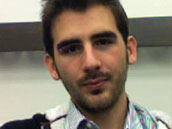Writings / Reviews
Poetry Review: An Autopsy of Spectral Bodies
J. A. Weingarten
Night Work: The Sawchuck Poems
By Randall Maggs
London, ON: Brick Books, 2008
192 pp. $20.00
Randall Maggs’s Night Work: The Sawchuck Poems emerges from an enjoyable tension between his poetic voice and Canadian sports history. Out of this tension comes an engaging and intensely corporeal narrative, nearly ten years in the making and a significant shift in theme from his earlier work. In part, his 1994 collection, Timely Departures, was cartographic in its content. These poems, however, biographically map the body and lay emphasis on its many literal and metaphorical scars. The result is an assiduous and cacophonous biographical narrative, but ultimately one that doesn’t mesh well with its poetic medium.
Maggs’s subject is Terry Sawchuck, a Ukrainian-Canadian who became one of the NHL’s most legendary goalies. The collection covers Sawchuck’s entire life, from his childhood dreams to his mysterious death in 1970. Maggs’s research is comprehensive, as is the impressive attention he pays to interviews and archival documents. His frequent vacillations between numerous subjective and objective viewpoints illustrate the forceful impact of these multiple sources. This makes for a multifaceted biographical tracing of Sawchuck’s life, which is aided by the clever inclusion of a coroner’s report and of numerous photographs—the shocking image of Sawchuck’s disfigured face is particularly effective.
Yet despite Maggs’s colourful manipulation of narrative perspective and documentation, one wonders how successful this soiree can be as a collection of poetry—it is difficult to accept the catalogic, encyclopedic prose as something inherently poetic. Contemporary Canadian poets, such as Fred Wah, have certainly dabbled in postmodern fusions of poetry and prose, but Maggs’s text resists the fall into such an experimental category. Rather, the author artificially poeticizes biographical prose without much attention to stylistic nuances; his lineation, for example, typically appears somewhat imprecise. Consequently, he quite unevenly favours narrative over style, and this, for me, is a major faux pas when one sits down to write a poem.
Specifically, Maggs’s occasional reliance on weak rhymes demonstrates the artificiality of the collection: “by the look in her eyes, winter butterflies” (25), “On the ice you pay the price” (26), “There had to be a better way to make a life, maybe / he would have that talk with his father-in-law his wife” (101). As well, his numerous attempts to mythologize Sawchuck and hockey more generally read as slightly clichéd: “Good Bye Terry, Good bye, arm in arm they sway from side / to side, the singing rising, soaring, / lifting the building” (146). Other sections sound slightly overwrought in their mysticism: “This is an ancient game with ancient laws” (46). These lackadaisical attempts at poeticizing the narrative only hinder the otherwise striking power of Maggs’s voice.
There are, however, some strong threads woven throughout this text, especially in terms of Maggs’s somatic focus, which leads to a discussion of the body-as-text. These poems, such as “Stations of the Cross” and “Rough Calculations” are the strongest in the collection: “Her fingers brush over my face. She knows / my history, travelling from scar to scar. Brow to cheek / to chin. Naming names” (37). Such intimate imagery figures the scars as historical narrative, invitations into stories and lives. But we also come to view history itself as deformed: “In the photograph, all you could really see were shapes / curving darkly into a white that might have been / the page’s nothingness” (87). Maggs’s treatment of photographs and texts that depict “nothingness”—an echo of Ondaatje’s undertaking in The Collected Works of Billy the Kid—highlights how vehemently history might resist stable representation. Indeed, these images of the past become as disfigured as the individuals who inhabit them. From these vantage points, Maggs offers an intriguingly intertextual and educational narrative, but not one that ultimately lends itself well to the subtlety of poetry.



